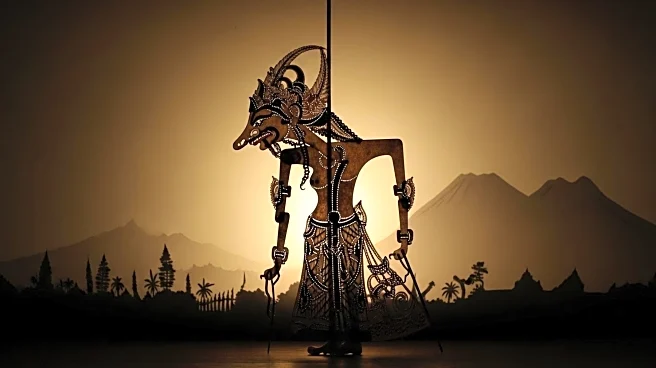What's Happening?
Indonesian filmmaker Kamila Andini is working on a new film titled 'Four Seasons in Java,' which is currently in post-production and featured at the Venice Gap-Financing Market. The film follows the story of Pertiwi, a woman who returns to her village after serving a decade in prison for killing a man in self-defense during an attempted rape. Her return coincides with the introduction of electricity to the village, symbolizing a clash between modernity and personal trauma. Andini's film addresses the high cost of development in Indonesia, which she argues often serves political interests rather than the people, leaving behind trauma. The film blends magical realism with local mythology and social critique, aiming to highlight the complexities of feminism in the global south.
Why It's Important?
The film 'Four Seasons in Java' is significant as it tackles pressing social issues in Indonesia, such as sexual harassment and the societal impact of development. By using a narrative that combines magical realism and social critique, Andini aims to shed light on the persistent injustices faced by marginalized groups. The film's themes resonate with contemporary issues, including power dynamics and the exploitation of land and people. It seeks to spark conversations about these topics, particularly among those in positions of power, and to challenge the imbalance of dominance in society.
What's Next?
As the film participates in the Venice Gap-Financing Market, the production team is seeking final funding for post-production, especially for visual effects, and the right sales agent. The film's completion is expected to initiate crucial discussions about power and societal imbalances, particularly among influential figures. The project has garnered international support, with partners from various countries contributing to its development and promotion.
Beyond the Headlines
The film's exploration of power and trauma in Indonesia also touches on broader cultural and ethical dimensions. It highlights the ongoing struggle between development and the preservation of cultural identity, as well as the ethical implications of exploiting natural resources and marginalized communities. The narrative serves as a metaphor for Indonesia's relationship with its land and people, urging viewers to consider the long-term consequences of unchecked development and power.










